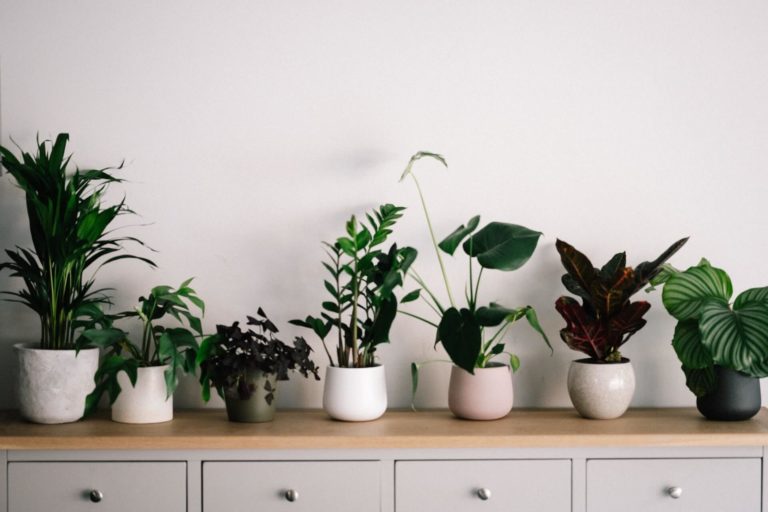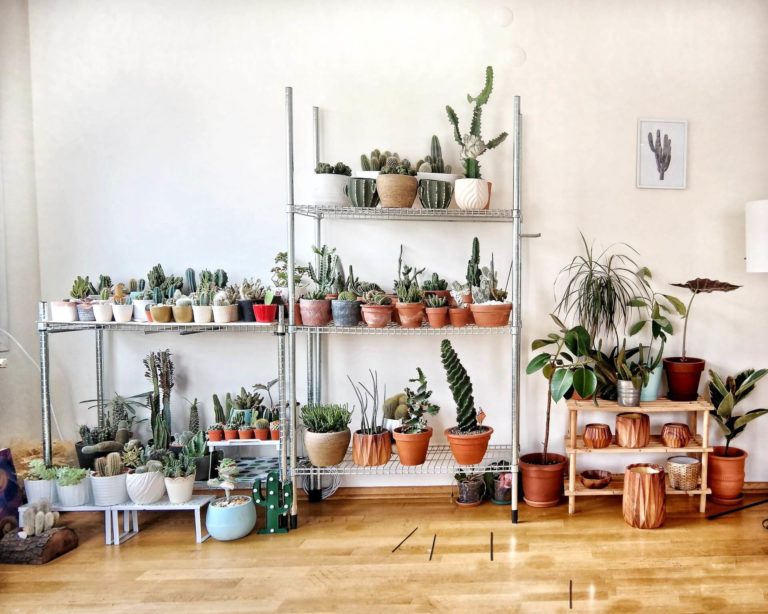8 tips to help you take better care of house plants

Rookie gardeners research some fancy plants and imagine their home becoming a jungle overnight. After the first check with reality and budget, those who are persistent and intent to thrive like their baby plants sometimes hit a hard wall because they lack experience and proper guidance. It’s easy to give up on gardening after a few dead plants, but with a little bit of knowledge and care, you can keep your plants healthy and thriving.
It is said that the best way to learn something is by doing it wrong the first time. Gardening is no different. You will make mistakes, and your plants may die as a result, but with proper care and instruction, you can prevent this from happening. In this article, we will provide 8 tips to help you take better care of your house plants and ensure that they live long healthy lives.
Ensure the necessary nutrients
There are a variety of plants that people try to grow in their homes, and each type requires a different approach. Some plants need more water than others, some need more sunlight, and some need more nutrients. If you don’t know what type of plant you have, it can be difficult to provide the right care for it so make sure you do the necessary research. For example, lucky bamboo can be quite elegant but it is not bamboo as this plant belongs to the Dracaena family and requires water only once a week. It is a cousin to the asparagus fern, which is a thirsty plant that needs watering every day. In contrast, an orchid needs plenty of sunlight and high humidity levels, as well as regular fertilizing.
Water your plants properly
One of the most common mistakes that people make when it comes to gardening is watering their plants improperly. You should water your plants when the soil feels dry to the touch. You don’t want the plant to be wet, just moist. Overwatering can kill your plants, so make sure you are careful with this.
Another mistake that people make is watering their plants with cold water. This can shock the plant and stunt its growth. Make sure your water is room temperature before you water your plants.
Provide the right amount of sunlight
Just like with water, it is important to provide the right amount of sunlight for your plants. Some plants need full sun while others only need a little bit of light. If you are not sure what type of plant you have, it is best to do some research online or speak to a gardening expert. Making sure your plants are getting the right amount of sunlight will help them grow healthy and strong.
Repot your plants when necessary
If you notice that your plant is starting to become root-bound, you will need to repot it into a larger pot. This means that the roots have grown too large for the current pot and are becoming constricted. Repotting your plants will help them grow bigger and stronger. Be careful not to overpot your plants, as this can also be harmful to their growth. Only repot your plants when necessary.
To properly repot your plants, you will need to remove the old soil from their roots. This can be a difficult task, but with a little bit of patience and care, you can do it. Remember to remove the old soil from your plants’ roots by carefully loosening it with your fingers. Do not use a knife or any other sharp object, as this can damage the plant.
Fertilize your plants
Just like people, plants need food to thrive. You can buy special fertilizer for house plants at your local garden center, or you can make your own. Fertilizing your plants will help them grow big and strong. Be sure to follow the instructions on the fertilizer package, and don’t fertilize your plants too often, as this can be harmful to their growth.
Mist your plants
If your home is dry, you may need to mist your plants occasionally to help them stay hydrated. You can buy a special spray bottle for this purpose, or you can use water from a faucet. Be sure to avoid getting the leaves wet, as this can cause fungal diseases.
Prune your plants
Pruning your plants is an important part of gardening. It helps keep the plant healthy and looking good. Pruning also helps the plant produce new flowers and leaves. Be sure to prune your plants according to their individual needs. Some plants need more pruning than others. Make sure your shears are clean and sharp before you start pruning your plants. Dull shears can damage the plant, and this will not allow it to grow properly.
It is important to remove dead leaves and flowers from your plants, as this can prevent the plant from being healthy. Dead leaves and flowers provide an ideal environment for pests and diseases to thrive, so make sure you are diligent in removing them. You can either remove them by hand or with scissors.
Monitor your plants for pests and diseases
Just like with people, plants can get sick and infected. This is why it is important to monitor your plants for any signs of pests or diseases. If you notice that your plant is not looking healthy, take a closer look at it and see if you can find any pests or diseases. If you do find pests or diseases, take action right away to treat the plant. There are many different types of pesticides and fungicides available at your local garden center. Be sure to read the instructions carefully before using them.
Watering your plants properly, providing the right amount of sunlight, repotting when necessary, fertilizing your plants, and pruning your plants are all important aspects of taking care of house plants. It takes time and patience to learn how to take care of plants, but with a little bit of practice, you will be able to do it like a pro. Follow these tips and your plants will be healthy and beautiful.

